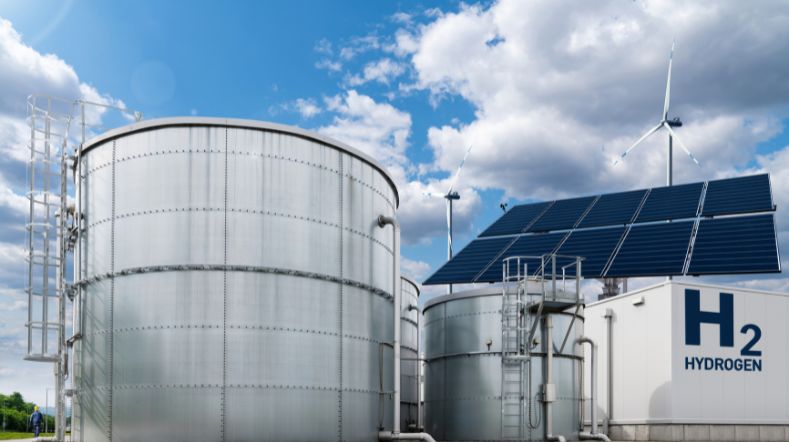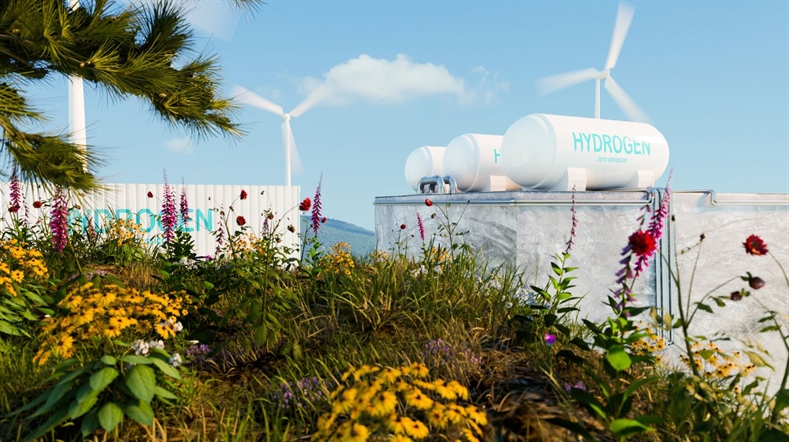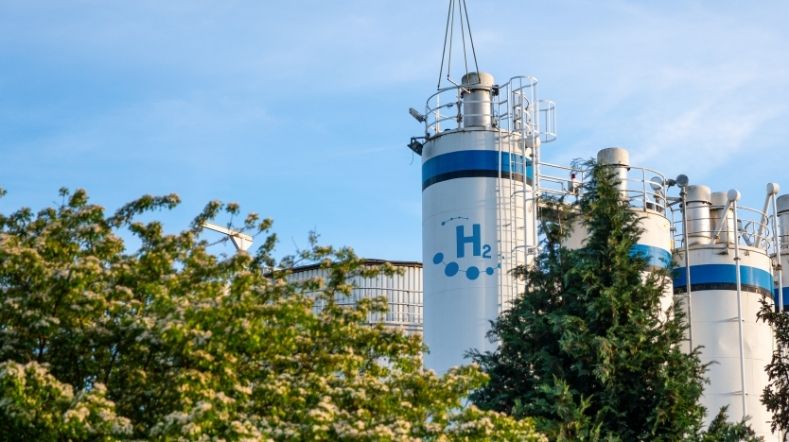Methane pyrolysis: producing hydrogen without carbon emissions
Hydrogen without CO2 emissions is important for the development of a carbon-free society. Hydrogen is needed to achieve global climate and energy targets. We have developed methane pyrolysis. This is a technology for producing hydrogen cleanly, and one which also creates a second valuable product: solid carbon.
Methane pyrolysis in brief
In methane pyrolysis, we produce hydrogen from natural gas with carbon - not CO2 - as a valuable by-product. It is affordable and will be commercially viable within a few years. The applications are numerous, e.g. steel additive, filler for car tyres, graphite, dye and soil improver. Conventional techniques for producing hydrogen consume a lot of energy, and are therefore not sustainable. With methane pyrolysis, a relatively new technique, we will soon be able to produce green hydrogen on a large scale.
Zero CO2 emissions during production
Until now, we have been producing hydrogen via conventional steam methane reforming/water shift reaction or partial oxidation processes. To produce hydrogen in this way, many hydrocarbons such as natural gas are needed. Large amounts CO2 are released during these production processes. A lot of CO2 is also released in the process of making solid carbon.
Capture and storage, as in the project H-vision, largely solves the problem of CO2 emissions. But by using methane pyrolysis processes, for example, it is no longer necessary to capture and store the CO2. In this process, we convert the C-atom of the hydrocarbon into valuable solid carbon as a result of which zero CO2 is released.
Unique technology
The technology for molten metal methane pyrolysis has existed for decades. However, companies such as BASF, Thyssenkrupp, Linde and Gazprom have recently developed various methane pyrolysis concepts. In a collaborative effort, we have developed a unique technique (for which a patent is pending) to separate the carbon from the molten metal more easily and efficiently. We are in contact with these companies in order to learn from one another, and to see how the unique TNO technology can be further developed collaboratively. There are also a number of technological areas where more research is needed, e.g. on how temperature and residence time in the reactor affect the quality of the carbon produced, or on what is the best way to bring the process to an industrial scale.
The benefits of methane pyrolysis
Molten metal methane pyrolysis offers several advantages over conventional methods of producing hydrogen.
- The cost of producing hydrogen is comparable to conventional steam methane reforming/water-shift-reaction processes.
- By using methane, we use its energy value in hydrogen production. The benefits are:
- We can produce hydrogen in large quantities. This is a requirement for industries such as ammonia plants and refineries.
- Methane will retain its value as a clean raw material for industrial production processes. In this way, countries with plenty of oil and gas can convert their reserves into valuable CO2-free hydrogen.
- Valuable solid carbon is produced without the process releasing CO2.
- There is zero CO2 emission in molten metal methane pyrolysis processes.
- The technology could be available to industry by around 2030.
Cooperation partners sought
In cooperation with Voltachem we made a plan of action which we discussed with stakeholders in the national and international hydrogen and carbon industry. We want to further develop and research this technology together with partners. Partners we are looking for include:
- gas suppliers and producers
- technology developers and licensors
- industrial gas producers
- companies from the energy, petrochemical, carbon and steel sectors
Get inspired
World Hydrogen Summit 2025
Hydrogen in the energy system: The future of sustainable energy in the Netherlands and Europe


NORCE and TNO are entering into a strategic partnership on hydrogen developments


Dutch consortium participates in EU research project on large-scale hydrogen storage in depleted gas fields


Underground hydrogen storage


